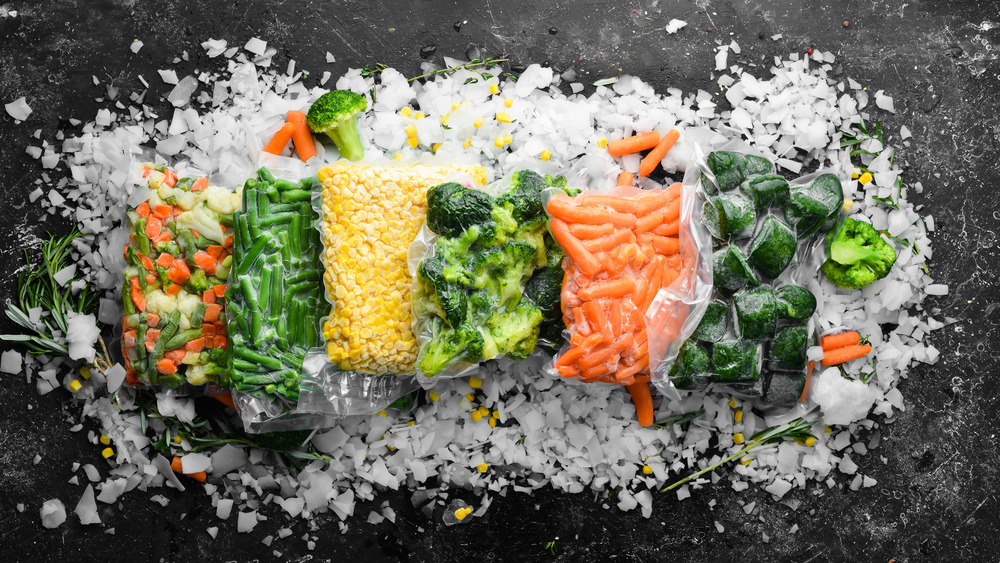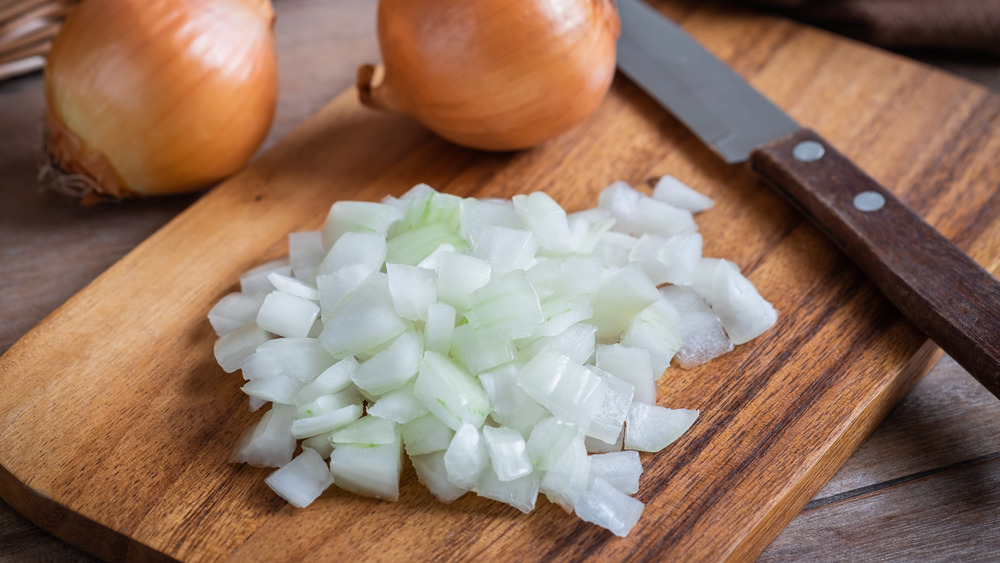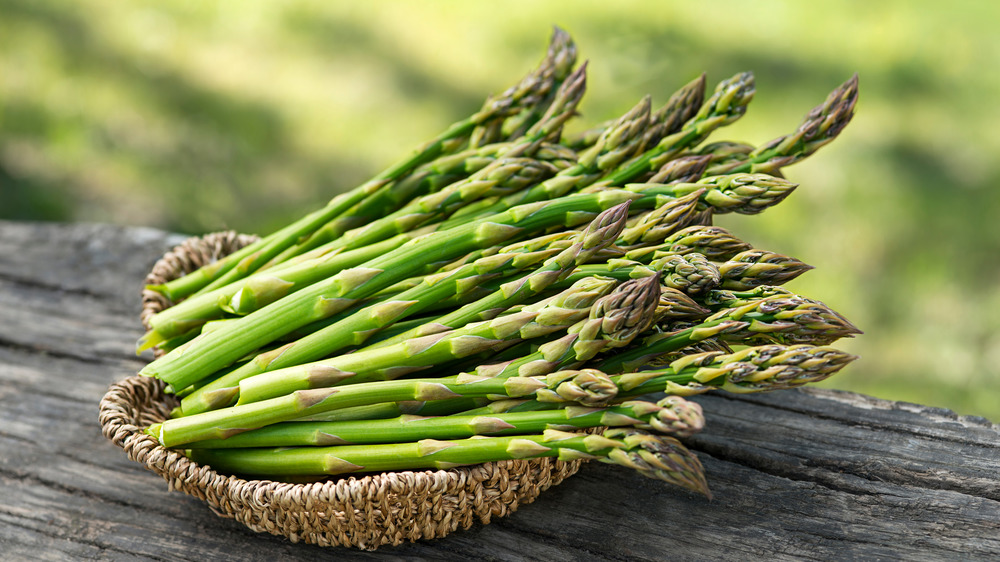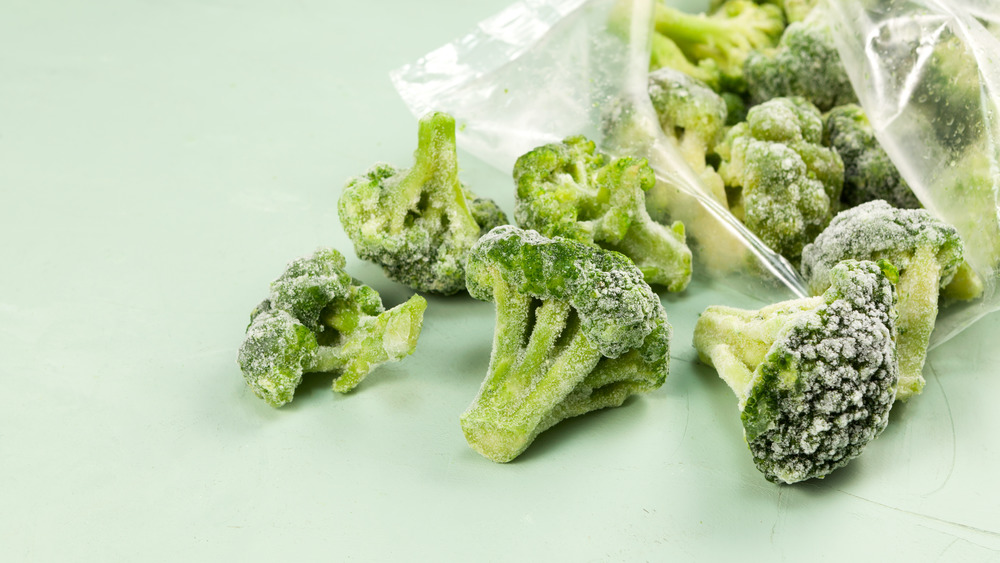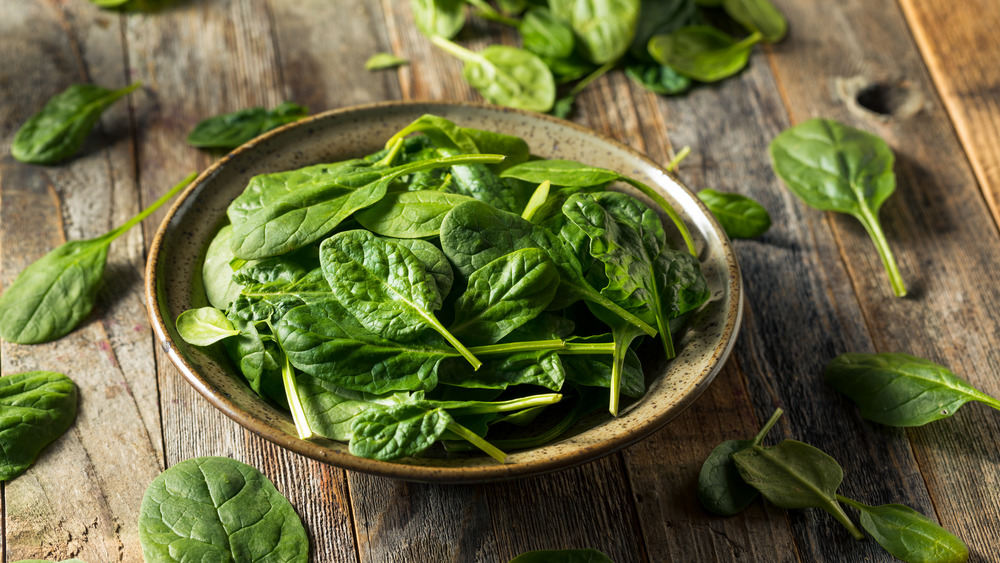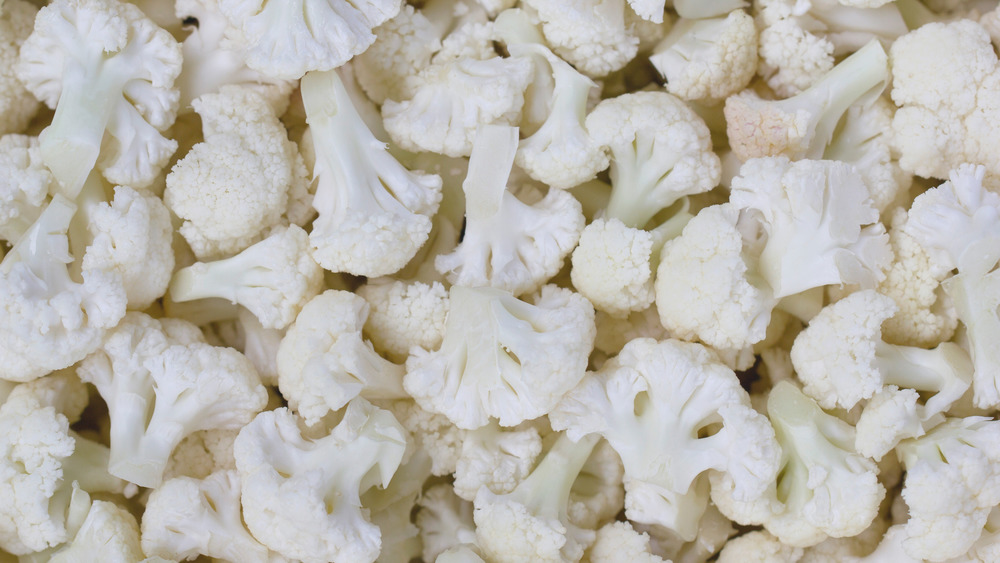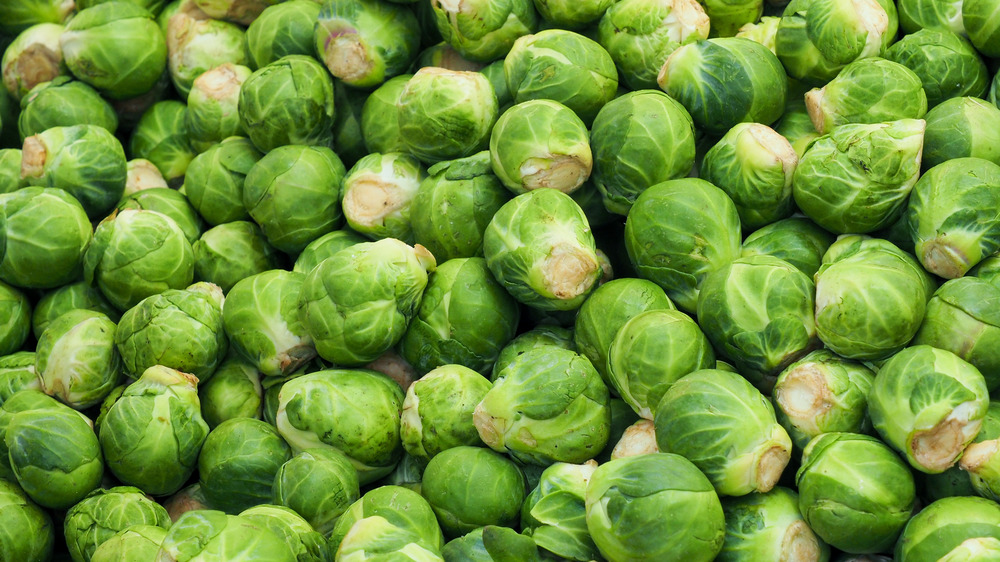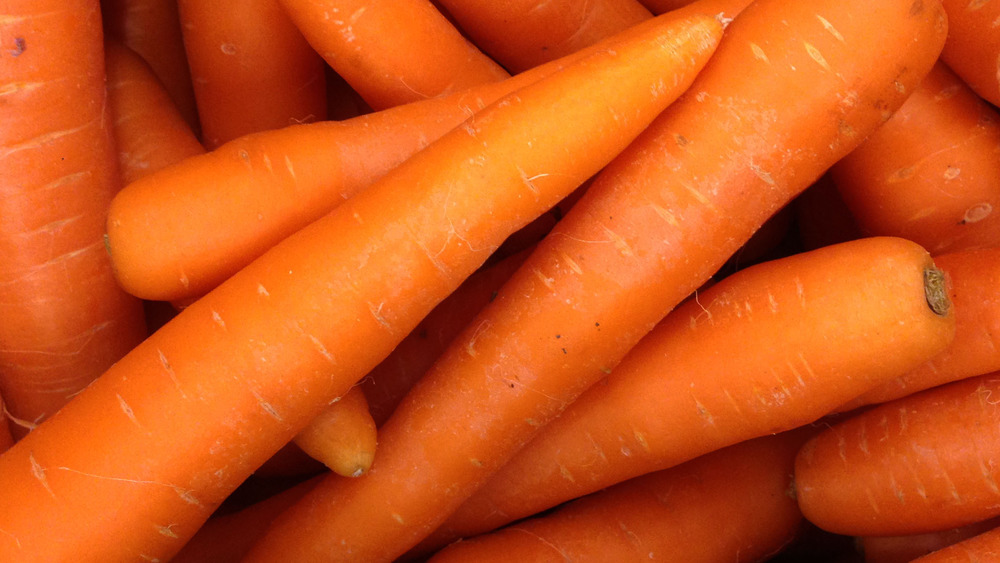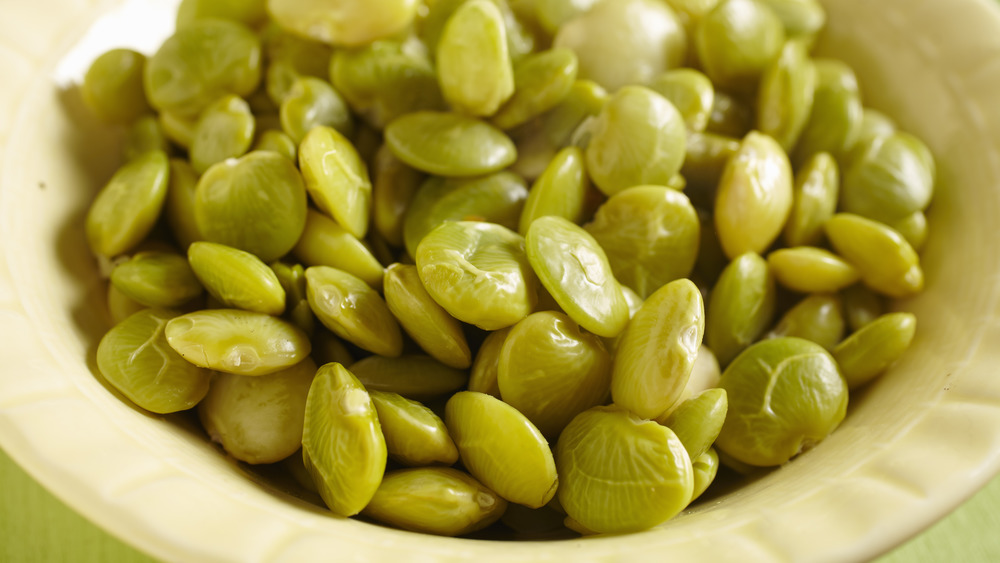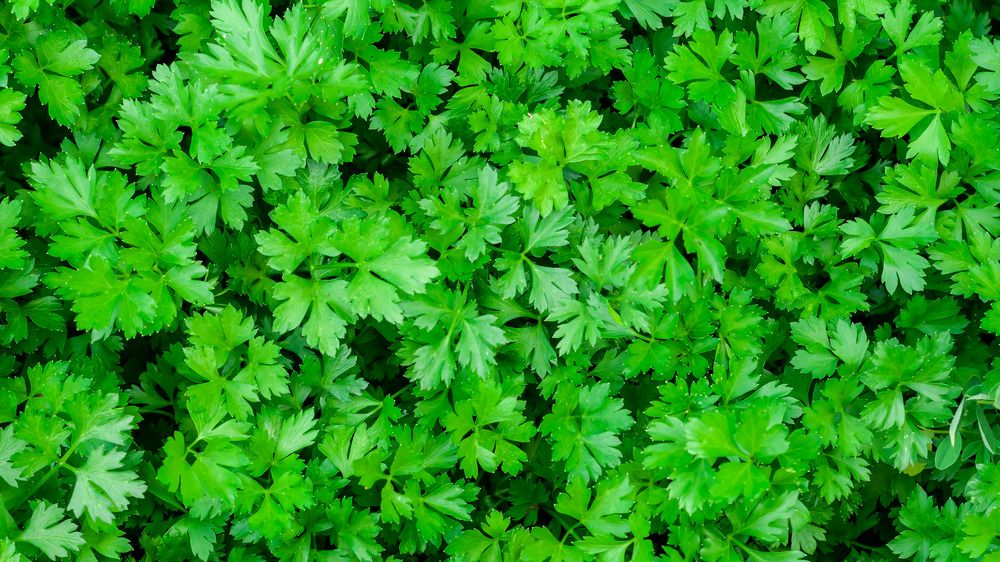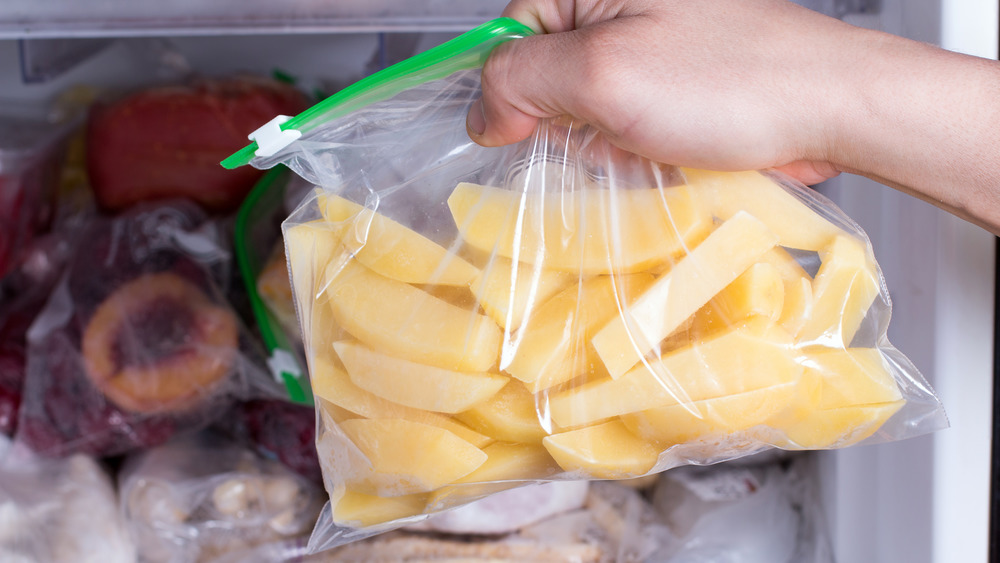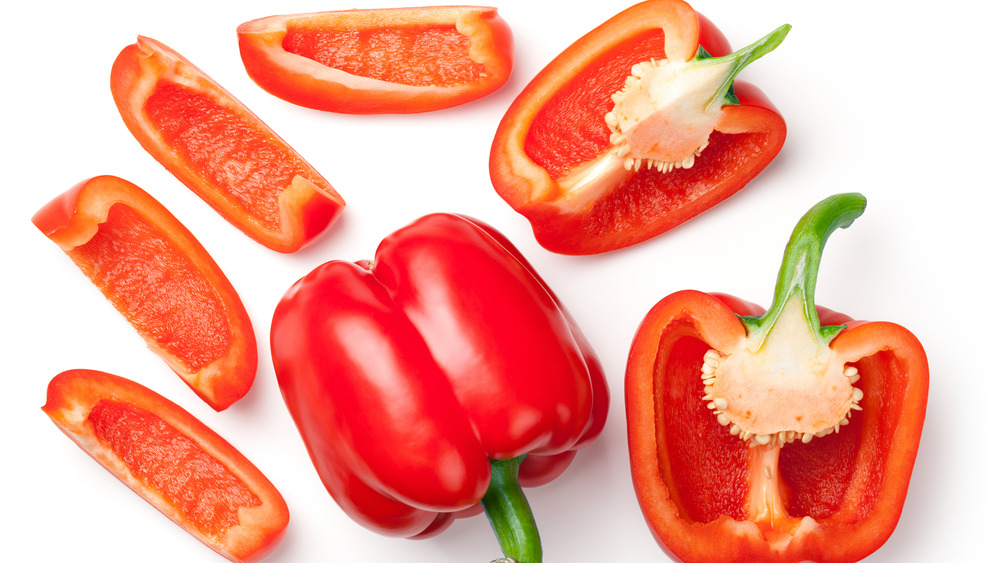Vegetables You Should Absolutely Never Buy Frozen
Frozen vegetables may get a bad rap, but the truth is that most of the time, they're actually quite nutritious. Vegetables are often frozen at the peak of freshness, helping seal that flavor and nutrition in. Therefore, frozen veggies can be even healthier for you than the more-expensive organic veggies that you're buying from the produce section. Who knew you could actually get healthier food for cheaper if you were just willing to peruse the frozen vegetable aisle?
All that is great information, but many people prefer not to buy frozen vegetables because of the way they taste or the kind of texture they have. We certainly can't blame you for that. In fact, we think that there are some veggies that you should just leave out of the mix if you're planning on buying some of your produce frozen, largely because the frozen version just doesn't taste as good as the fresh stuff. Also, Harvard Medical School reports that some frozen vegetables might have slightly lower levels of nutrients than their fresh counterparts. That's something to keep in mind when you're shopping for your week's veggies.
Which ones are worth leaving in the freezer section and out of your cart? Keep reading to find out which vegetables you should absolutely never buy frozen, and make sure you avoid them the next time you're exploring the frozen section at your local grocery store. Head to the produce section or a farmer's market instead. You'll be glad you did.
Pre-diced onions
Onions can seriously take any dish and kick it up a notch in an instant. They have such a strong, intense flavor that you can't help but to want to take another bite. Whether you eat them raw, pickled, or caramelized into a perfect sweet goo, it's hard not to love onions and how good they can make your food taste. And since they are an essential ingredient in so many recipes, you'll want to have them around all the time. Unfortunately, though, when it comes to frozen onions, you should definitely leave them behind.
Why? Well, though you'll be saving a little bit of time if you decide to get pre-diced onions, you're likely going to pay extra cash for those mere few minutes you're saving. In addition, you'll also be getting an onion that just doesn't taste as good as it would if you were to buy it fresh. The texture will likely be too chewy and it won't have the pungency that you've come to expect from a fresh-cut onion.
Want that delicious onion flavor but can't be bothered chopping? No worries. Just throw your onion (peeled, of course) into a food processor and it will do that job for you. You won't even have to get out your cutting board! You can also buy some types of onion in bulk, and when you do so, they generally come at a cheaper price. That way, you can save money and always have onions on hand.
Asparagus
Whether you love it or hate it, you can't deny that asparagus has an especially strong flavor. It tastes fresh and green with just the right amount of bitterness and bite, which is why it's such a popular vegetable during the spring and summer months, when it's as fresh as can be in many regions. If you're not buying it during the warmer months, though, you may wonder if it's a better idea to buy your asparagus frozen. We're here to tell you that you probably won't want to do that, at least not if you actually like asparagus.
While the flavor of asparagus shouldn't be too affected by being frozen, the freezing process will certainly change the texture and consistency of the vegetable. One of the best parts of biting into a piece of asparagus is that snap and bite. But when you choose frozen asparagus, that just won't happen.
See, asparagus will get soft and mushy after you cook it if it's already been frozen. If you're the type who loves to cook their veggies down into mush, then frozen asparagus may just be the way to go (though we urge you to try your asparagus a different way). But if you like it on the brighter, less-cooked side, you'll definitely want to stick to the fresh stuff.
Broccoli
Another vegetable that gets mixed reviews is the humble broccoli. This cruciferous vegetable is super healthy for you. In fact, it's in the same nutritious family as kale, cauliflower, and Brussels sprouts. Broccoli has a strong green taste that will make you swoon if you love a crunchy vegetable in a salad, soup, or just about anything else you eat. Unless, of course, you decide to buy your broccoli frozen.
It's nice to get broccoli florets that are already chopped up and ready to go, as it can save you a lot of time. Cutting into a huge head of broccoli can certainly be a big pain when you're just trying to get dinner on the table. However, you're going to be selling yourself short if you always settle for the frozen stuff. Part of what most people like about broccoli is that crunch and snap. That's what makes your veggies seem and taste fresh.
But you shouldn't be expecting that same texture when you choose frozen broccoli. Instead, you'll get the same mushy texture you'll find in frozen asparagus, apart from the fact that broccoli tends to hold up a little bit better. Sure, it might be a good way to get more veggies in, and it's true that choosing frozen broccoli is going to offer you the same amount of nutrition as its fresh counterpart. But when it comes to actually liking how your food tastes, we suggest that you buy fresh instead.
Spinach ... if you want it in a salad
Here's the thing: We love keeping frozen spinach around. You can always buy it pre-frozen, but you can also freeze leftover fresh spinach if you don't think you're going to use it all in time. (We won't admit how often this happens to us.) From there, you can add your frozen spinach to pretty much anything you make that needs a boost of veggies. Making a soup? Throw some spinach in the mix. Making a pasta dish? Include some spinach. Making a smoothie? Spinach might be good with that. You get the picture. If you set your mind to it, you can add spinach to just about any dish. Any cooked dish, that is.
Unfortunately, if you choose frozen spinach, you're going to have to cook it. This is not a vegetable that you can thaw and use afterward. So, if you're buying spinach to make a salad or include in any other cold dish, you'll want to pay a visit to your produce section instead of the frozen food aisle. That way, you can ensure you're getting the freshest flavor possible and you'll avoid the droopy, soggy situation that would occur if you were to try to make a salad with frozen spinach.
The same can be said for most other leafy vegetables that you would include in a salad, like lettuce or arugula. The water count of these veggies is simply too high for them to be frozen effectively.
Cauliflower
If there's one frozen vegetable you've probably been seeing more and more of over the past few years, it's probably cauliflower. You can buy it in the big chunks, or florets, that you'll often see in similarly frozen bags of broccoli. But there's also a good chance that you'll see some riced cauliflower in your supermarket's frozen section. We'll let you make your own decision about that, but personally, we prefer the real thing to cauliflower "rice."
But one thing is for sure: We're not going to be buying frozen cauliflower florets anytime soon. Why, you may ask? That's because the texture of this vegetable is admittedly a little unusual. When it's frozen, that texture gets even stranger. You may notice that frozen cauliflower often gets a rubbery texture to it. Additionally, the florets can start to fall apart, leaving you with tiny pieces of cauliflower instead of good-sized chunks of vegetables. We don't have to tell you that such a thing doesn't exactly sound mouth-wateringly delicious.
Cauliflower may not be your favorite vegetable, but if you want to try to enjoy it, you're better off getting some fresh from the produce section. If you cook it the right way, you may just be surprised at how delicious it can be.
Brussels sprouts
Another vegetable that we prefer in its fresh form? Brussels sprouts. It is true that it's easy to steam frozen Brussels sprouts, but let's be honest. Does anybody really like steamed Brussels sprouts? This is one vegetable that tastes much better if it's roasted, with a crispy exterior and tons of spices and seasonings. It's even better if it's sliced before it's roasted, to free up more of the vegetable's surface area for even more crispiness and flavor.
But when you roast frozen Brussels sprouts, there's just no getting around the fact that they're probably going to come out mushy, as one Reddit user sadly discovered. That's because all that liquid from the ice soaks into them, making it next to impossible to get the crisp flavor and texture you really want.
Of course, if you insist on eating frozen Brussels sprouts, you should remember to never thaw them before you cook them. That is practically guaranteed to result in the mushiest sprouts you've ever tasted. Instead, cook them on high directly out of the freezer. Don't forget to use plenty of olive oil on the sprouts, as well.
Carrots
Usually, when we advise against buying vegetables frozen, it all comes down to taste and texture. After all, that's what's bound to change when you freeze just about any food. But with carrots, it's a different situation altogether. While frozen carrots aren't known for being notoriously tasty, they aren't bad if you just want something colorful to throw into a stir fry. However, if you do this, you'll actually be getting fewer nutrients than if you were to cook them fresh.
According to Bicycling, scientists have observed that iron levels were lower in frozen carrots than they were in fresh ones. Since iron carries oxygen to your muscles, this is an important nutrient to make sure you're getting enough of. Iron deficiency is all too common, especially in athletes and active people, CSH Perspectives in Health reports.
Therefore, if you want to make sure you get the most nutrients out of every bite you take, you're probably better off buying fresh carrots. The good news is that, when carrots are stored properly, they can last a long time in the fridge. They're also inexpensive, even when you buy organic carrots, so it's a good fresh veggie to always have on hand.
Lima beans
Lima beans: quite possibly every kid's least favorite veggie. We can't blame them. The taste gets some getting used to, which is probably why adults tend to like them more than kids do. Don't like lima beans yourself? That may be because you've mostly been eating frozen ones. Fresh lima beans aren't something you see at every local grocery store, unfortunately. And we're sad to report that lima beans rank high on our list of vegetables you should never buy frozen.
According to HuffPost, lima beans get grainy and dried out when they've been frozen, which is hardly appetizing. Instead, you're better off going to your local farmer's market and buying fresh lima beans. Wondering what to do with them once you've gotten them? There are tons of amazing recipes online that will give you some new ideas on how to cook them. Who knows? You may find that you actually love this long-maligned veggie.
Herbs like parsley and basil
There are some herbs that are great for freezing. Rosemary, for example, freezes very well. Its thick, woody stem fares well in the harsh environment of the freezer. Other herbs, though, are best eaten fresh. For example, North Dakota State University notes that herbs like parsely are far too delicate to freeze properly. That's because they hold plenty of water in their leaves. When that water freezes, it changes the texture of the herb altogether. Therefore, we can't recommend buying these frozen, though you'll rarely see them in the freezer aisle.
Fresh herbs are always best, anyway. When used generously, fresh herbs add a delicious punch of refreshing flavor to your food. However, if you don't cook that often or are just using fresh herbs for a single meal, you may find that you can't use the rest up in time. If that's your issue, you can always turn to dried herbs. It's true that dried herbs don't have quite as much flavor as fresh ones, but the benefit is the fact that you can keep them in a cabinet for a long time and use them whenever you want.
Alternatively, some people like to grow fresh herbs at home. Depending on where you live, you may be able to simply grow herbs on your windowsill. That way, you never have to worry about them going bad, and you know you have an ever-replenishing supply of herbs whenever you're throwing together a recipe.
Potatoes
If there's one vegetable you will find frozen more than any other, it has to be potatoes. In fact, some grocery stores have a special section just for frozen potatoes. They come in all forms: french fries, tater tots, hash browns, and everything in between. We do love that frozen potatoes make things so easy to prepare. After all, who has time to make french fries from scratch at home? But at the same time, we have to admit that if you want the best-tasting potatoes out there, frozen is just not the way to go.
That's because, like so many other vegetables, the texture of potatoes change when they have been frozen. Therefore, you know you're not getting the best product available. While some may choose to give up the texture of a fresh potato for the sake of convenience from time to time, you should know that they're simply not going to taste the same as fresh potatoes.
As with carrots, though, it isn't too hard to keep fresh potatoes stocked in your house anyway. They keep for a long time when properly stored. Plus, if you always have some around, there's a good chance that you're going to use them. They are also incredibly cheap, meaning you can buy a huge bag of potatoes and keep them on hand all the time without breaking the budget. That's certainly what we recommend if you just have to get your regular potato fix!
Peppers
There's nothing quite like a nice bell pepper. No matter which color of pepper you prefer, it's hard to deny that just about everyone can get down with this vegetable that's packed full of vitamin C. That's reflected in the frozen vegetable section at your local grocery store, no doubt. There are always tons of frozen products with peppers in them, from soup mixes, to stir fry blends, to just plain frozen bell peppers. But are they worth your time and money?
In our opinion, no. Frozen bell peppers and fresh bell peppers almost act like two totally different vegetables. While frozen bell peppers aren't bad, per se, they have none of that delicious crunch that you've come to expect from fresh bell peppers (via The Spruce Eats). The texture just changes too much when they've been frozen. We have also found that many frozen peppers lose their flavor. Plus, you may only be able to find certain colors of bell pepper, which is a bit of a letdown for the look of your meal. When was the last time you saw frozen orange bell peppers, for instance?
Fresh peppers can be expensive in the produce section, but if they are one of your favorite veggies, we would always suggest going with them instead of the frozen ones. The same would be true for other peppers like jalapenos, though you likely won't see these in the frozen section quite as much as bell peppers.
